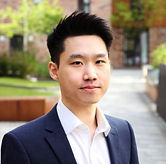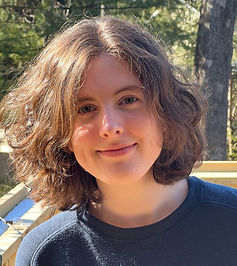Computational Social Science, AI, and Democratic Behavior
The CSS Working Group uses computational and mathematical approaches to investigate social behavior. We are interested in the empirical analysis of social phenomenon. Recent projects include:
-
Visual communication dynamics on Facebook, Instagram, and TikTok.
-
Game-theoretic modeling of bias arising from large-language models (LLMs).
-
Surveys of political attitudes, misinformation belief, and AI content during political events.
We also work on the development of methodological tools, such as deep learning for image analysis, social network analysis, ChatGPT & LLM workstreams, simulation, and integrating journalistic and creative approaches. If you are an undergraduate interested in research, please reach out and let's chat!
If you are a gradudate student interested in social media, modeling/machine learning, or AI & game theory, please get in touch at herbert@dartmouth.edu with your C.V.
Faculty Investigator

Herbert Chang
I'm excited to work with students to develop their core social science areas through student-led projects, whether it's in politics, public policy, AI, or sociology. We can always find the right data and computational tools for each project, so long as they bring interest and motivation. I am also committed to helping students succeed later in their careers, whether it is for further study or transition to industry.
Team

Benjamin Shaman '26
Benjamin Shaman is a major in Quantitative Social Science and Computer Science with a minor in environmental studies at Dartmouth College. His research covers the behavior of large-language models, visual communication, and social networks of food systems.
Key themes: Social media and politics, food systems

Yung-Chun Chen
Yung-Chun Chen is a data scientist at Dartmouth College, specializing on applying Natural Language Processing (NLP), Large Language Models (LLMs), and machine learning on real world challenges such as misinformation detection and information operations. She holds a Master’s degree in Computational Social Science from the University of California, San Diego and B.A. in Sociology from National Taiwan University.
Key themes: Social media and politics, misinformation and info-ops

Chiyu Wei
Chiyu is a Mathematics Ph.D. student at Dartmouth College, whose research lies at the intersection of computational social science, artificial intelligence, and large language models. His work focuses on utilizing advanced computational techniques on diverse social data to study human social behavior and collaboration. He holds a Master’s degree in Computer Science from the University of Southern California.
Key themes: Artificial intelligence, affective computing, game theory

Maya Magee '25
Maya Magee is a Quantitative Social Science major interested in artificial intelligence, social networks, and cognitive biases. Her research focuses on large-language models, their ability to simulate human behavior, and their potential impact on information environments on social media.
Key themes: artificial intelligence, large-language models, information habits

Sean Noh '28
I'm from Virginia and will be attending Dartmouth next year to study Computer Science, and I'm also interested in education, QSS, and psychology. I hope to develop educational technology and learn application development. I love playing tabletop games, I am an Eagle Scout, and I recently published a habit-tracking app, Cogo.
Key themes: AI and game theory

Tracy Weener '26
Tracy Weener is a public policy science research intern, saxophonist in the Wind Ensemble, associate editor of the Law Journal, and Women in Business associate. After graduating, Tracy intends to apply data science to government through work in policy analysis. Her paper "Conjoint Analysis of the 2024 Taiwanese Presidential Election" won the NATSA Undergraduate Paper Competition. She is from Boxford, Massachusetts.
Key themes: Survey experiments, Taiwanese politics, misinformation, youth politics

Mingyue Zha '27
Mingyue Zha is a freshman at Dartmouth College studying Economics and Neuroscience. After moving from Shanghai, China to Connecticut, she did fMRI research at the Yale School of Medicine’s Department of Psychiatry. She’s interested in doing research on attention economics, social networks, and online streaming communities.
Key themes: attention economics, platforms and social networks
Alumni Hall of Fame

Sunny Fang
CS PhD Student at Columbia

V Quidore '24
Assistant Librarian

Zach Yusaf '27
Undergrad at Dartmouth

Sam Winchester '24
Investor at Radian Capital

Joanna Olagundoye '24
Analyst at Baringa Partners